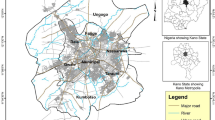Abstract
Logistics is historically defined as the tool to provide the necessary commodities in a timely manner. Today, logistics is not only responsible for supplying, but also for the recovery and transformation of various products. In this context, electrical-electronic waste is toxic and pollutes the environment. Therefore, governments, under international regulations, must define public policies for its collection, collection and recovery. The proposed methodology is based on a quantitative case study and follows 5 steps: Analysis of the context and background, based on secondary data processing, data retrieval and processing, data geolocation, indicator construction and analysis and generalization. The positioning and flow management for these products by private companies in Chile is presented. The volumes and type of waste, allows to visualize how South America is 30 years behind Europe. The study highlights the role that governments and private companies should have to mitigate the environmental effects. The study generated showed that from 2014 to date the number of recycling points for plastic, glass, cans, cardboard and, above all, large and small electrical and electronic items, have increased satisfactorily. The study shows the need to collaborate directly with the central government authorities.
Access this chapter
Tax calculation will be finalised at checkout
Purchases are for personal use only
Similar content being viewed by others
1. References
Atabaki, M.S., Mohammadi, M., Naderi, B.: New robust optimization models for closed-loop supply chain of durable products: towards a circular economy. Comput. Ind. Eng. 146 (2020)
Chilenter: Obtenido de Fundación Chilenter (2017). http://www.chilenter.com/
Cesaro, A., Marra, A., Kuchta, K.,Belgiorno, V., Van Hullebusch, E.D.: WEEE management in a circular economy perspective: an overview. Global NEST J. 20, 743–750 (2018)
Elia, V., Gnoni, M.G., Tornese, F.: Improving logistic efficiency of WEEE collection through dynamic scheduling using simulation modeling. Waste Manage. 72, 78–86 (2018)
Esenduran, G., Atasu, A., Van Wassenhove, L.N.: Valuable e-waste: implications for extended producer responsibility. IISE Trans. 51, 382–396 (2019)
European Commission – DG Environment: Development of Guidance on Extended Producer Responsibility (EPR). http://epr.eu-smr.eu/documents/BIObyDeloitte-GuidanceonEPR-FinalReport.pdf?attredirects=0&d=1%5Cn. http://ec.europa.eu/environment/waste/pdf/target_review/GuidanceonEPR-FinalReport.pdf
Forti, V., Baldé, C.P., Kuehr, R., Bel, G.: The Global E-waste Monitor 2020: Quantities, flows and the circular economy potential. United Nations University (UNU)/United Nations Institute for Training and Research (UNITAR) – co-hosted SCYCLE Programme, International Telecommunication Union (ITU) & International Solid Waste Association (ISWA), Bonn/Geneva/Rotterdam (2020)
Fundación Recyclapolis: Fundación Recyclapolis. Obtenido de Recyclapolis, 18 de Mayo de 2016. http://www.recyclapolis.cl/100-contenedodres-para-chile/
Ghisolfi, V., Chaves, G., Siman, R.R., Xavier, L.H.: System dynamics applied to closed loop supply chains of desktops and laptops in Brazil: a perspective for social inclusion of waste pickers. Waste Manage. 60, 14–31 (2017)
Golinska, P., Romano, C.A. (eds.): Environmental Issues in Supply Chain Management: New Trends and Applications. Springer, Cham (2012). https://doi.org/10.1007/978-3-642-23562-7
González-Feliu, J., Cedillo-Campos, M.G.: Logística y desarrollo territorial. Revista Transporte y Territorio 17, 1–9 (2017)
Gonzalez-Feliu, J., Sánchez-Díaz, I.: The influence of aggregation level and category construction on estimation quality for freight trip generation models. Transp. Res. Part E Logist. Transp. Rev. 121, 134–148 (2019)
Govindan, K., Agarwal, V., Darbari, J.D., Jha, P.C.: An integrated decision making model for the selection of sustainable forward and reverse logistic providers. Ann. Oper. Res. 273, 607–650 (2019)
Hafner, G.: Buenas Prácticas Internacionales en la Gestión de Residuos Sólidos Domiciliarios e Industriales con referencia específica al concepto de la Responsabilidad Extendida del Productor. Alemania, Stuttgart (2016)
Holguín-Veras, J., et al.: Transferability of freight trip generation models. Transp. Res. Rec. 2379(1), 1–8 (2013)
Kamczyc, A.: Medals used in the Tokyo Olympics made from recycled materials (2021). Wastetodaymagaine.com
Kumar, A.: Exploring young adults’ e-waste recycling behaviour using an extended theory of planned behaviour model: a cross-cultural study. Resour. Conserv. Recycl. 141, 378–389 (2019)
Ley 20920: Biblioteca del Congreso Nacional. (M. D. AMBIENTE, Productor) Obtenido de, 12 de Mayo de 2016. https://www.leychile.cl/Navegar?idNorma=1090894&buscar=20920
Li-HsingShih.: Reverse logistics system planning for recycling electrical appliances and computers in Taiwan. Resour. Conserv. Recycl. 32, 55–72 (2001)
Massari, F., Monier, V., Serouge, M., Gonzalez-Feliu, J.: The collection and transport of end-of-life products and wastes from the standpoint of reverse logistics. The state of knowledge and methodological proposals. English Synthesis. RECORD/ADEME, Paris (2014)
Massari, F., et al.: La collecte et le transport des produits usages et des déchets dans une optique de logistique inverse. Etat des connaissances et propositions méthodologiques. Final Report. RECORD/ADEME, Paris (2013)
Morana, J.: Sustainable Supply Chain Management. Wiley, Hoboken (2013)
Panepinto, D., Zanetti, M.: Technical and environmental comparison among different municipal solid waste management scenarios. Sustainability 13, 1–11 (2021)
Puntos Limpios El Corte Inglés: Recuperado el 2017, de (2017). https://punto-limpio.info/elcorteingles/residuos-electronicos/
Queiruga, D., Walthera, G., González-Benito, J., Spengler, T.: Evaluation of sites for the location of WEEE recycling plants in Spain. Waste Manage. 28, 181–190 (2008)
Recycla: Obtenido de (2004). https://www.recycla.cl/historia.html
Recycla: Residuos Electrónicos la nueva basura del siglo XXI. Santiago de Chile: Fundación Casa de la Paz (2007)
Resources, Conservation and Recycling: Xu, M. (ed.) Obtenido de (1994). https://www.journals.elsevier.com/resources-conservation-and-recycling
Tableau: Obtenido de (2018). https://www.tableau.com/es-es/products/desktop
Torricelli, G.P.: Algunas reflexiones sobre Logística y desarrollo territorial (RTT 17/2017). Revista Transporte y Territorio 18, 372–376 (2018)
United Nations University: eWaste en América Latina. GSMA (2015)
Walther, G., Spengler, T.: Impact of WEEE‐directive on reverse logistics in Germany. Int. J. Phys. Distribut. Logist. Manage. 337–361 (2006)
Waste Management: Cossu, R. (ed.) Obtenido de (1989). http://www.sciencedirect.com/science/journal/0956053X?sdc=1
Zoeteman, B.C., Venselaar, H.R.: Handling WEEE waste flows: on the effectiveness of producer responsibility in a globalizing world. Int. J. Adv. Manuf. Technol. 47, 415–436 (2010)
Author information
Authors and Affiliations
Corresponding author
Editor information
Editors and Affiliations
Rights and permissions
Copyright information
© 2021 Springer Nature Switzerland AG
About this paper
Cite this paper
Vargas, X. et al. (2021). Geographic Positioning and Flow Management for Electric and Electronic Equipment Waste (e-waste): Case of Chile and Generalizations for South-American Countries. In: Guarda, T., Portela, F., Santos, M.F. (eds) Advanced Research in Technologies, Information, Innovation and Sustainability. ARTIIS 2021. Communications in Computer and Information Science, vol 1485. Springer, Cham. https://doi.org/10.1007/978-3-030-90241-4_49
Download citation
DOI: https://doi.org/10.1007/978-3-030-90241-4_49
Published:
Publisher Name: Springer, Cham
Print ISBN: 978-3-030-90240-7
Online ISBN: 978-3-030-90241-4
eBook Packages: Computer ScienceComputer Science (R0)




